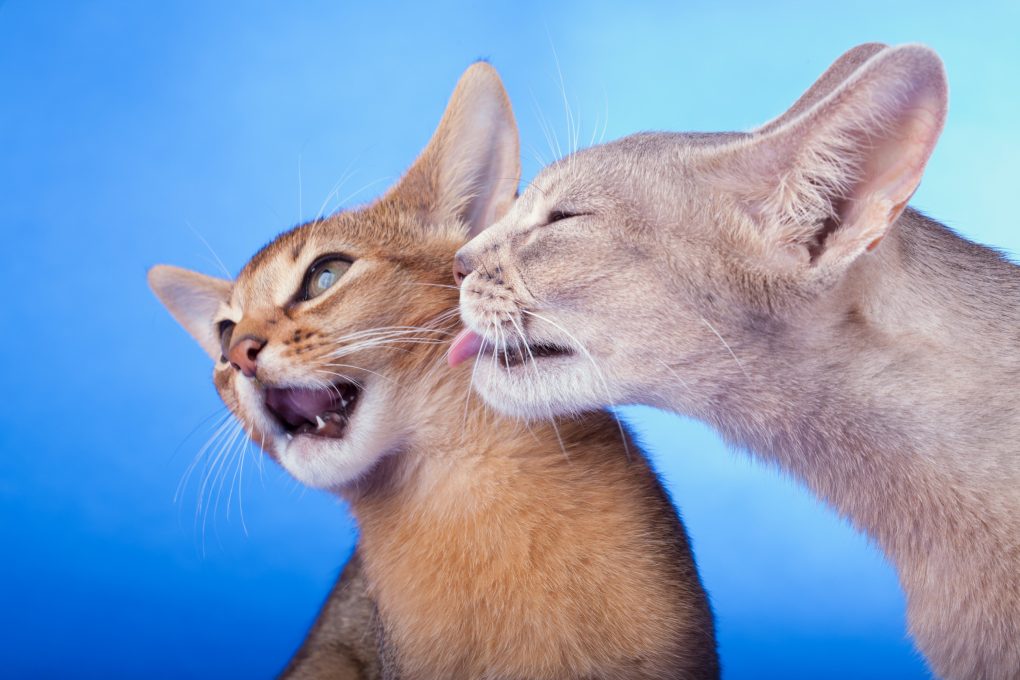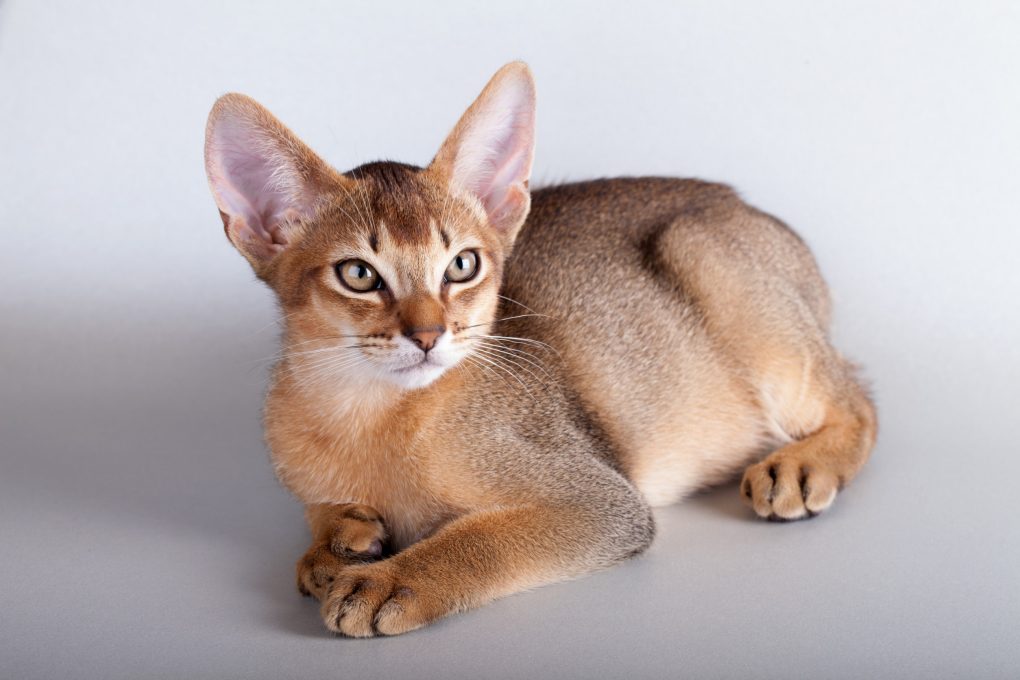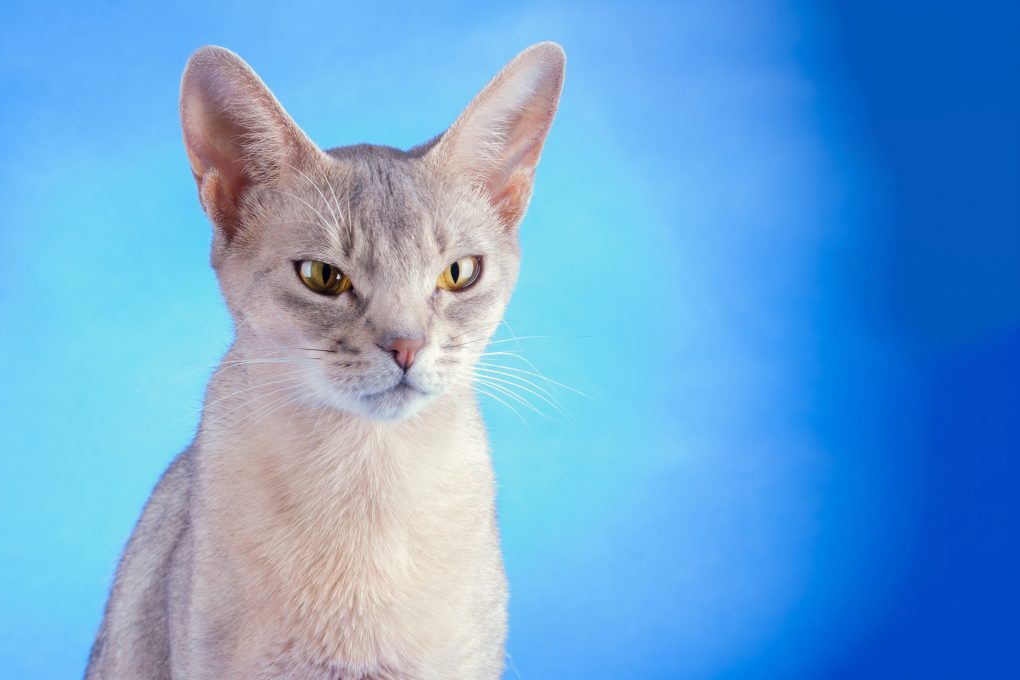Do Abyssinian Cats Shed: A Guide to This Breed’s Shedding Tendencies and Some Tips to Keep Their Coat Healthy
Yes, Abyssinian cats shed. They have a short, fine coat that is easy to groom, but they tend to shed all year round moderately. This shedding is normal and natural for cats, as it helps to keep their coat in good condition by removing old and damaged hair.
To keep shedding under control, it is recommended to brush your Abyssinian cat at least once a week with a fine-toothed comb or a grooming tool designed explicitly for short-haired cats. This will help remove loose hair, prevent matting, and distribute natural oils throughout their coat.


Additionally, it is essential to vacuum carpets and furniture regularly and grooms your cat’s bedding to remove any loose hair. It’s also worth noting that factors such as changes in diet, stress, or hormonal imbalances can cause excessive shedding in cats. If you notice an unusual amount of shedding or hair loss, you should consult your veterinarian to rule out any underlying health conditions.
Table of Contents
When an Abyssinian Cat Sheds More
Abyssinian cats, like most breeds, tend to shed more heavily during certain times of the year. This shedding is known as a “coat blow” and usually occurs twice a year, in spring and fall. During these times, you may notice that your cat is losing more hair than usual and that their coat appears thinner.
The shedding season is caused by changes in the amount of daylight, which triggers hormonal changes in the cat’s body. During the shedding season, the cat’s body will naturally start to shed its old coat to grow a new one for the upcoming season.
Note that shedding is a normal and natural process for cats, and there’s no need to be alarmed if you notice your cat shedding more than usual. However, it’s a good idea to increase the frequency of grooming during the shedding season. Additionally, it is essential to vacuum carpets and furniture regularly to prevent the spread of harmful bacteria and parasites.
A cat’s coat will grow back more slowly if it sheds a lot, so brushing your cat regularly to remove any loose hair is essential to keep its coat looking healthy and clean. If you have an Abyssinian cat that doesn’t seem to be shedding as much as usual, it may be worth checking its health and nutrition, as these factors can also play a role in hair shedding.
Abyssinian Cats and Dander Allergy
Abyssinian cats are not hypoallergenic, but they may be better than most cats for people suffering from dander allergy. All cats, including the Abyssinian, produce a protein called Fel d 1, found in their skin cells, saliva, and urine. This protein is what triggers allergic reactions in people.


The Abyssinian produce lower levels of Fel d 1 than others. This means that some individuals may be less affected by an allergic reaction to an Abyssinian cat than they would be to other cat breeds. Additionally, some Abyssinian cats may produce less of the Fel d 1 protein than others, so it’s essential to spend time with a specific cat before adopting it to see if it causes any allergic reactions.
It’s worth noting that even if you are less allergic to an Abyssinian cat, you may still experience some symptoms, such as sneezing, itchy eyes, or a runny nose. So, discussing your options with a health professional before getting a cat is best if you have a cat allergy.
Grooming Your Abyssinian Cat
Grooming an Abyssinian cat is easy due to its short, fine coat. Brush your cat at least once weekly to remove loose hair and prevent matting. Also, keep your cat’s nails trimmed to prevent them from snagging on things and causing injury. Use a pair of cat-specific clippers, or have your vet or groomer do it.
Clean your cat’s ears regularly with a cotton ball or pad moistened with a gentle ear cleaner. Be sure to clean the visible part of the ear and never insert anything into the ear canal.
Abyssinian cats are known to be meticulous groomers; however, if you notice that your cat is dirty or has an odor, it’s a good idea to bathe them. Instead, use a mild, cat-specific shampoo, and rinse them thoroughly.
In addition, brush your cat’s teeth at least once a week to prevent dental problems. Use a toothbrush designed for cats and toothpaste formulated for cats. It is also essential to check your cat’s eyes regularly for any signs of discharge or redness, as these can indicate an infection or other problem.
It’s important to note that while grooming is essential to taking care of your Abyssinian cat, it’s also important to make the process a positive experience for them. Speak softly and calmly, and use treats or rewards during and after grooming to make it a pleasant experience for your cat. Always make sure to give your cat plenty of fresh water and food when grooming time is over.
Abyssinian Cat Diet for Better Coat Health
A healthy diet is essential for maintaining good coat health in Abyssinian cats. Feed your cat a high-quality, nutritionally balanced diet appropriate for its life stage. Look for a diet that is high in protein and low in carbohydrates.


Omega-3 and omega-6 fatty acids are essential fatty acids that play a crucial role in maintaining a healthy coat and skin. Foods high in these fatty acids include fish, flaxseed, and chia seeds.
Also, Abyssinian cats like water and need to consume enough of it to keep their body hydrated, which will help keep their coats healthy and shiny. Some cats may benefit from supplements, such as vitamin E, which can help to maintain a healthy coat and skin. Be sure to consult with your veterinarian before adding any supplements to your cat’s diet.
Avoid foods that cause food allergies. Some cats are allergic to certain ingredients in their food, such as chicken, fish, or grains. If you suspect your cat is allergic to a particular ingredient, talk to your vet about switching to a hypoallergenic diet. In addition, please do not feed your cat foods high in carbohydrates, such as grains, as they can cause inflammation in the body, leading to a dull coat.
It’s important to note that every cat is different, and their dietary needs may vary depending on age, weight, and overall health. So it’s always best to consult your veterinarian to determine the best diet for your cat.
